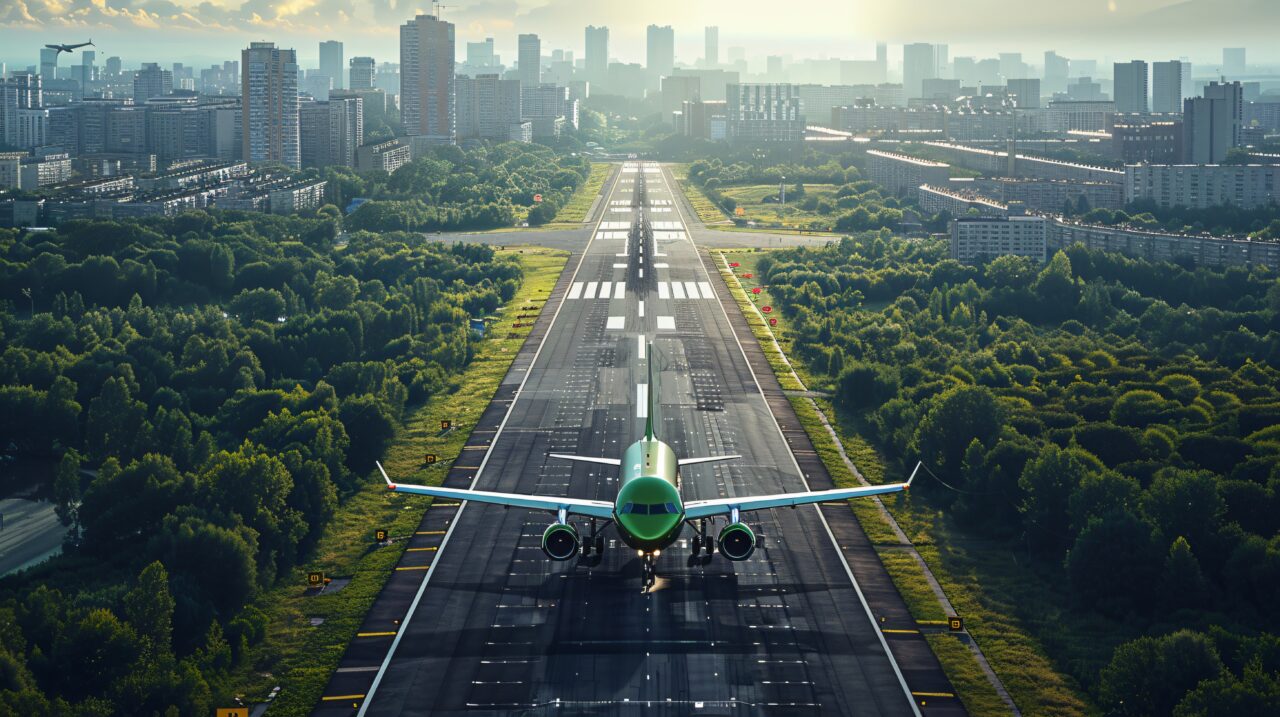Learn how AI orchestrating smart airport infrastructure improves operational efficiency, reduces costs, enhances sustainability, and elevates the passenger experience in airports worldwide.
Airports are complex ecosystems, where various systems and operations need to function in harmony to ensure smooth travel experiences. With the increasing demand for faster, safer, and more sustainable travel, AI orchestrating smart airport infrastructure is becoming the cornerstone of modern airports. By harnessing the power of artificial intelligence, airports can integrate and optimize their various systems to deliver seamless operations and elevate passenger satisfaction.
What is AI Orchestrating Smart Airport Infrastructure?
AI orchestrating smart airport infrastructure refers to the integration of artificial intelligence (AI) into airport operations to create a unified, intelligent platform that can monitor, manage, and optimize all aspects of the airport ecosystem. From baggage handling and security checks to flight operations and energy management, AI plays a pivotal role in ensuring that every system works in sync, improving both efficiency and effectiveness.
This AI-powered approach enables real-time decision-making, predictive analytics, and automation, which is crucial for addressing the dynamic and often unpredictable nature of airport operations. With AI orchestrating smart infrastructure, airports can not only streamline their daily activities but also future-proof themselves for growing passenger demands and evolving sustainability regulations.
How AI Orchestrates Smart Airport Infrastructure
AI orchestrates smart airport infrastructure in several impactful ways. Here’s a closer look at how AI works within an airport setting:
1. Real-Time Data Integration and Analysis
AI systems collect and analyze data from a range of sources across the airport, such as IoT devices, security systems, flight schedules, and weather updates. By integrating all this data into a centralized platform, AI offers a real-time view of the airport’s operations. This integration allows for informed decision-making and enables AI to predict and mitigate issues before they arise, such as delays, security breaches, or maintenance needs.
2. Optimizing Passenger Flow and Experience
One of the most visible benefits of AI orchestrating smart airport infrastructure is the improvement in passenger experience. AI can predict and manage passenger traffic at key touchpoints, such as check-in counters, security checks, and baggage claim areas. By streamlining these processes, AI ensures passengers spend less time waiting and more time enjoying their journey. In addition, AI-driven systems can offer personalized services, such as directing passengers to less congested areas or alerting them to potential delays.
3. Predictive Maintenance for Critical Infrastructure
AI’s ability to predict maintenance needs is a game-changer for airport operations. Through continuous monitoring of assets like escalators, air conditioning systems, and baggage handling equipment, AI can identify signs of wear and tear before they lead to system failures. This proactive approach to maintenance minimizes downtime and repair costs, ensuring that all airport systems remain operational at all times.
4. Smart Energy Management
AI plays a crucial role in optimizing energy consumption within airports, which is vital for sustainability efforts. AI orchestrates smart airport infrastructure by managing HVAC systems, lighting, and other utilities to reduce energy consumption during non-peak hours. Additionally, AI can help airports track their carbon footprint, providing insights that enable them to meet environmental standards and sustainability goals.
5. Enhancing Security and Safety
Security is a top priority for any airport. AI-enhanced surveillance systems can quickly analyze video feeds from security cameras to identify unusual activity, such as unauthorized access or suspicious behavior. By automating these processes, AI helps security personnel respond more quickly and accurately to potential threats. Furthermore, AI can integrate with other safety systems to manage emergencies, such as evacuation procedures, in a more coordinated and efficient manner.
Benefits of AI Orchestrating Smart Airport Infrastructure
The implementation of AI in airports brings a range of benefits:
1. Improved Operational Efficiency
By automating and optimizing operations, AI ensures that airports function more efficiently, minimizing delays and improving the flow of passengers and cargo. For example, AI can adjust staff levels dynamically based on real-time passenger volume, ensuring that resources are allocated effectively.
2. Cost Reduction
AI can help airports save money by reducing operational inefficiencies. Through predictive maintenance, energy optimization, and smarter resource allocation, AI-driven systems significantly cut down on operational costs while maintaining a high level of service.
3. Sustainability Goals
Airports are increasingly under pressure to reduce their environmental impact. With AI orchestrating smart infrastructure, airports can implement strategies to reduce energy consumption, lower emissions, and adopt sustainable practices, contributing to their green initiatives.
4. Enhanced Passenger Experience
AI-driven solutions not only improve operational efficiency but also enhance the passenger experience. By reducing wait times, streamlining security, and offering personalized services, AI makes the airport experience smoother and more enjoyable.
5. Better Decision Making and Adaptability
AI systems provide valuable insights that enable airports to make more informed decisions. Whether it’s reallocating resources during peak traffic times or responding to operational disruptions, AI helps airports adapt quickly and efficiently to changing conditions.
The Future of AI-Orchestrated Smart Airports
As technology continues to evolve, the role of AI in airports will only grow. The future of AI orchestrating smart airport infrastructure lies in even deeper integration, where AI works across all levels of airport operations everything from airside operations to passenger services will be interconnected. Moreover, as more airports adopt AI technologies, the ecosystem will become increasingly sophisticated, creating a network of intelligent airports that share data and insights, driving even more efficiency and innovation.
In the coming years, we can expect AI to orchestrate smart airport infrastructure to deliver even greater improvements in efficiency, security, and sustainability. By embracing AI now, airports will not only enhance their operational capabilities but also lay the groundwork for the smart airports tomorrow.

